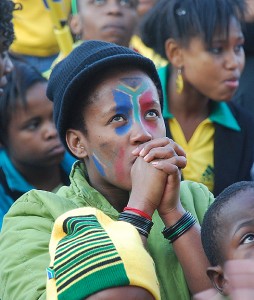Sexism in the media
Thursday, June 24th, 2010 by Leigh WorswickScanning The Herald newspaper today, I noticed how women hardly feature and when they do, they’re generally criticised. We live in a such a man’s world. A world where the emphasis is all on men. Women are still treated as inferior beings whether it be in the classroom, office, or on the sports field. In society women are often treated as if they are a piece of meat. A lot of women are harassed and treated disrespectfully by men. They are whistled at and flirted with constantly.
This disrespectful treatment is extremely evident in the case of sport and particularly in the case of sports magazines that feature half naked women in bikinis. Women let themselves down by allowing themselves to be exploited for a male dominated market where sex sells. Let’s see some actual sports women on the cover of Sports Illustrated, instead of wafer thin super models with bleached blonde hair.
In October 2009 Sports Illustrated featured an article in which they suggested “Sports men who score the most . . . talent for the game leads to spotlight of fame. Fame leads to money. And money leads to . . . honey” – sports stars get the hottest dates. Fact. Those who score on the field usually score off it too . . .who is complaining?”
I am.What message are they trying to put across? Women are simply regarded as an accessory. What is this saying to the youth of today? It portrays women purely as sex symbols and nothing more .
Then when Sports Illustrated finally features an article on an actual sports woman, its high jumper Blanka Vlasic winner of the gold medal at the world championships in Berlin and she is given absolutely no recognition for her true talent and ability but rather credited as “hottie of the year”.
I find this completely demeaning.











